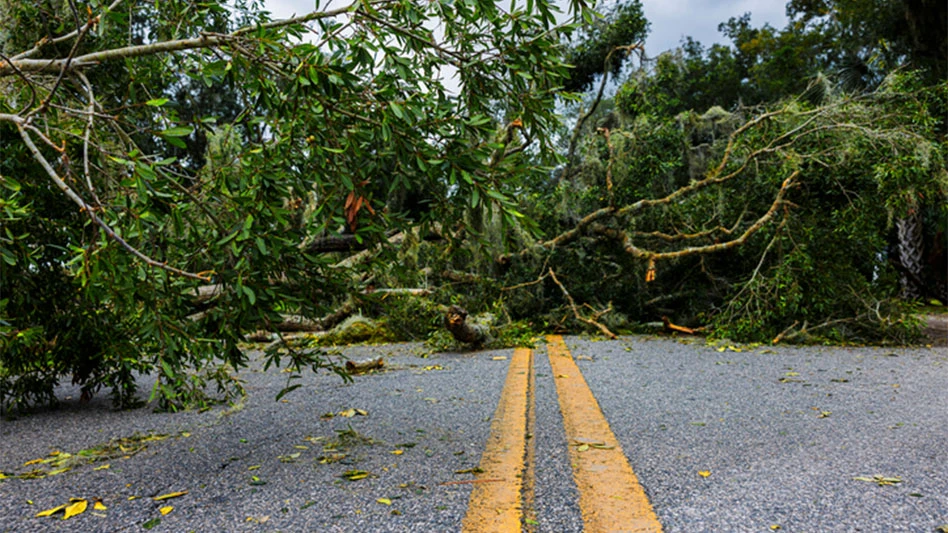
iStock | Alex Potemkin

Editor’s note: In the following article, PCT caught up with Joe Pascaretta, chief operating officer of WorkWave, who shares what PCOs can do prior to and in the aftermath of a hurricane to minimize operational challenges.
Extreme weather can present challenges to route-based businesses like pest control.
The National Oceanic and Atmospheric Administration noted a 45 percent increase in extreme weather over the past two decades. Extreme weather can result in PCOs having to reschedule routes, which may mean moving services from one technician to another, switching service days or switching indoor and outdoor services, said Joe Pascaretta, chief operating officer of WorkWave.
“Flexibility in your scheduling is key to minimizing missed appointments and unhappy customers during an extreme weather event,” Pascaretta said. “Using route optimization software to help reschedule, move appointments, reroute trucks and handle customer notifications is crucial during the unpredictability that comes with severe weather events.”
Different weather can mean an uptick in different types of pests.
If there is an increase in water or moisture, mosquitos and cockroaches are more likely to pose an issue, for example, or drive rodents out of their harborages and into accessible human dwellings instead.
DISASTER PLANNING. In addition to having a disaster plan that outlines your employees’ roles in an emergency, be sure to keep gear and vehicles maintained on a regular basis so they’re ready when needed, Pascaretta said.
Weather disasters provide a valuable opportunity to put artificial intelligence (AI) to work for your business. Having automated technology is crucial to help drive preparedness and response for hurricane season — or any other weather emergency.
The International Data Corporation cites a 60 percent reduction in data loss incidents when employing cloud-based solutions.
Using cloud-based software is the only sure-fire way to ensure your data and information is protected in the event of a power outage or physical damage, significantly reducing the risk of data loss by hosting backups off site, Pascaretta said.
“For your technicians in the field, knowing data is automatically synced with the back office brings even more peace of mind that info is backed up across the board,” he said. “Be sure appropriate members of your team are trained on how to access data in an emergency, and regularly test your access to ensure everything goes smoothly.”
As AI continues to develop, Pascaretta said it could help provide insights into past weather to better anticipate and prepare for future weather conditions.
“Identifying areas that are more likely to be affected by severe weather allows for more accurate planning, while analyzing performance during past disasters can help to identify rooms for improvement and generate stronger plans for future events,” he said.
Utilizing modern AI and Internet of Things (IoT) technologies, predictive maintenance leverages data from sensors on vehicles and equipment to forecast when maintenance is necessary. This proactive approach helps to prevent breakdowns and ensures that all equipment remains in optimal condition before, during and after severe weather events, Pascaretta said.
Advanced fleet management software uses AI and machine learning to analyze data from multiple sources to optimize routes, monitor vehicle health and ensure adherence to maintenance schedules.
Telematics systems provide real-time monitoring of vehicle health, offering data on engine performance, fuel consumption and other critical metrics. This information is invaluable for scheduling timely maintenance and repairs, thereby reducing the likelihood of vehicle failures during critical times.
IMPORTANT PREPARATION REMINDERS. Transparency and communication are keys to supporting employees and communities during these times. The Edelman Trust Barometer indicates a 35 percent increase in employee morale and community trust during disaster responses when communication is open and transparent.
Pascaretta said the best thing for pest control companies to do in this situation is to prepare. Businesses should be prepared to take and respond to calls and emails from remote locations, as well as being prepared to utilize call centers to assist in case of emergencies.
“When prepping for extreme weather, it’s best practice to ensure you have a backup plan in place. For your business, this means anticipating how you’ll address communication between clients and employees, out-of-office notifications and rescheduling services quickly [or in advance],” he said.
Preparing ahead of time can help protect the safety of employees, while having open communication, flexibility and preparedness during severe weather — like having reliable trucks, safety equipment and GPS technology, for instance, or allowing employees to work remotely when possible — will benefit everyone involved.
TRAIN FOR IT. The National Safety Council cites a 50 percent increase in workplace safety compliance when appropriate training is provided.
“Make a habit of reviewing your disaster preparedness and recovery plans on a recurring schedule — not just when the forecast calls for trouble,” Pascaretta said. “Ensure your plan covers the bases, from maintaining up-to-date emergency contact information for employees and stakeholders to stocking up on the equipment and supplies you’ll need during disaster recovery well in advance.”
It’s also important to communicate how you will help your communities and clients following a hurricane or other event, whether that’s through swift rescheduling or your company’s preparedness to provide additional services. Consider pairing with other businesses or local organizations to aid relief efforts, when possible.
Latest from Pest Control Technology
- Donny Oswalt Shares What Makes Termites a 'Tricky' Pest
- Study Finds Fecal Tests Can Reveal Active Termite Infestations
- Peachtree Pest Control Partners with Local Nonprofits to Fight Food Insecurity
- Allergy Technologies, PHA Expand ATAHC Complete Program to Protect 8,500 Homes
- Housecall Pro Hosts '25 Winter Summit Featuring Mike Rowe
- Advanced Education
- Spotted Lanternflies, BMSBs Most Problematic Invasive Pests, Poll Finds
- Ecolab Acquires Guardian Pest Solutions





